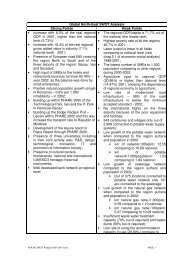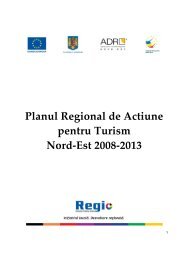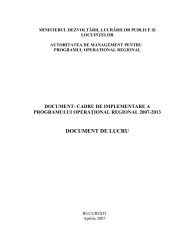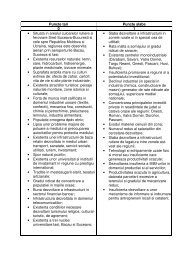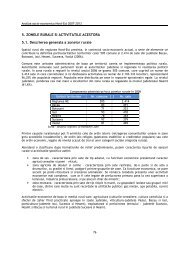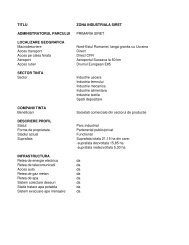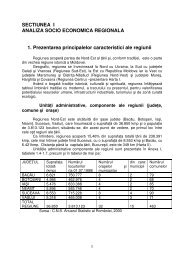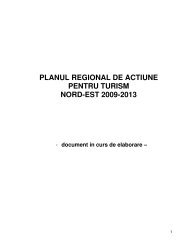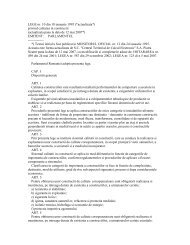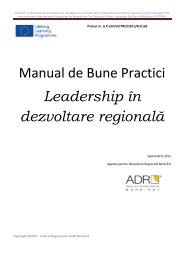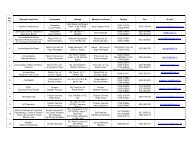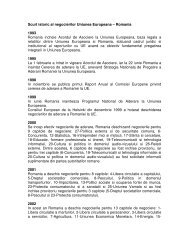EURADA News no. 288
EURADA News no. 288
EURADA News no. 288
You also want an ePaper? Increase the reach of your titles
YUMPU automatically turns print PDFs into web optimized ePapers that Google loves.
ANNEX 1 – p. 4<br />
It received much attention during the constitutional debate with<br />
the addition of the word "territorial" to the eco<strong>no</strong>mic and social<br />
cohesion. Since then, successive Presidencies have re-launched<br />
the discussion which culminated in the adoption by Ministers<br />
responsible for spatial planning and regional development of the<br />
Territorial Agenda in May 2007. In that context, Ministers invited<br />
the Commission to prepare a report on territorial cohesion.<br />
The Green Paper will therefore constitute the Commission's<br />
contribution to the Territorial Agenda, while simultaneously<br />
improving its internal thinking on an important dimension of the<br />
constitutional debate. It will further provide analytical and policy<br />
support for the assessment of the programmes co-financed under<br />
cohesion policy during the period 2007-2013.<br />
Main problems identified:<br />
• Lack of a common definition of territorial cohesion in the<br />
Member States;<br />
• Diversity of governance systems (vertical and horizontal<br />
coordination) in the member states;<br />
• Low level of implementation of territorial cohesion issues in<br />
the programming under cohesion policy;<br />
• Lack of integration of the concept in sectoral policy designing.<br />
Objectives of EU initiative:<br />
In the new Constitutional Treaty, territorial cohesion will be<br />
added, beside eco<strong>no</strong>mic and social cohesion, as a shared<br />
competence. In this context, the policy objectives are:<br />
• to provide for a common definition of the concept at EU and<br />
Member States level;<br />
• to report on how the concept is implemented in the<br />
governance systems and in the programming under cohesion<br />
policy in the Member States;<br />
• to propose possible operational tools to better integrate this<br />
dimension in cohesion policy and in the sectoral policies<br />
having a territorial impact;<br />
• to initiate an in depth dialogue between Member States (on<br />
the basis of the Territorial Agenda) and the Commission.<br />
A Small Business Act for<br />
Europe<br />
Expected date of adoption<br />
of the initiative: June<br />
2008<br />
Context and problem definition:<br />
In November 2005, the Commission launched Modern SME policy<br />
to integrate SMEs in the renewed Lisbon Partnership for Growth<br />
and Jobs (COM(2005) 551). The principal objective of the policy is<br />
to mainstream SMEs’ concerns into EU and national policies by<br />
applying the “Think Small First” principle. In addition, the<br />
Commission set out five priority areas where Member States and<br />
the Commission have made efforts to create a better business<br />
environment and to encourage more people to become<br />
entrepreneurs. These are:<br />
(1) cutting red tape<br />
(2) improving SMEs’ access to markets<br />
(3) promoting entrepreneurship and skills<br />
(4) improving SMEs’ growth potential<br />
(5) strengthening dialogue and consultation with SME<br />
stakeholders.



